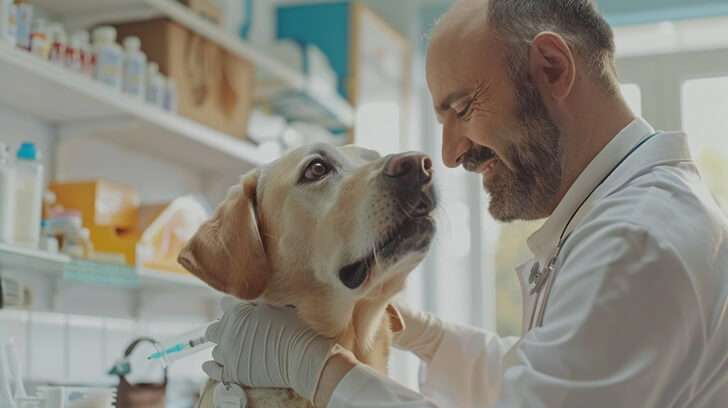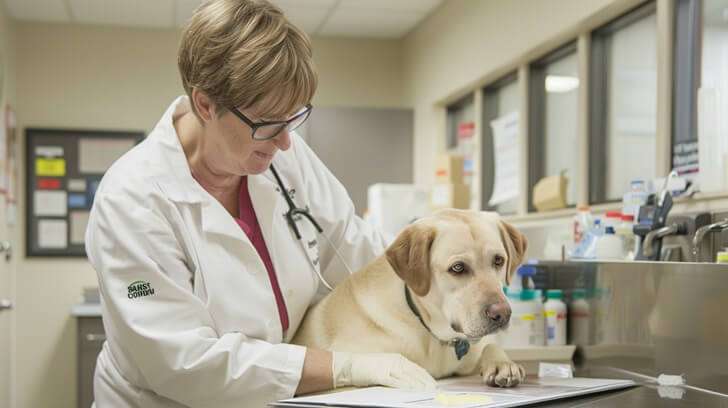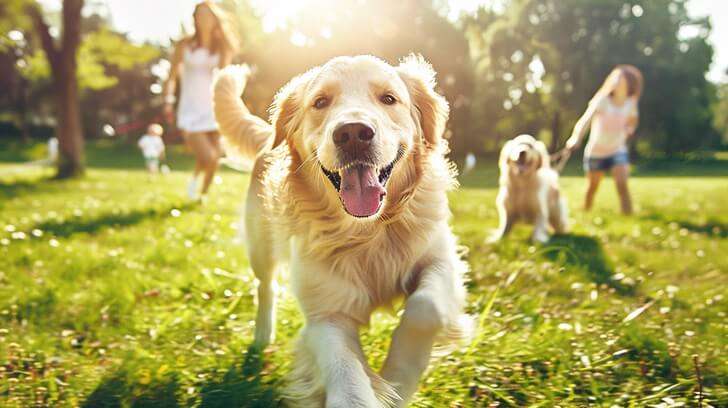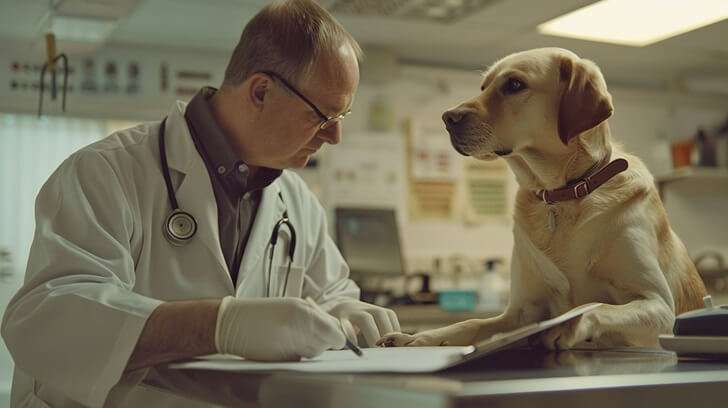
Ensuring the health and well-being of your furry friend is a top priority for every dog owner, and one of the most critical aspects of canine care is vaccinations. Vaccines are not just a routine procedure; they are a fundamental part of keeping your dog safe from serious diseases. In this comprehensive guide, we will delve into everything you need to know about dog vaccinations, from the essential vaccines every dog should receive to the vaccination schedule that will keep them healthy and thriving.
Understanding the significance of vaccinations can be a game-changer for your pet’s health. It can save you from heartache, unexpected veterinary bills, and the potential loss of your beloved companion. This guide aims to provide valuable insights and practical tips that will empower you to make informed decisions about your dog’s health care. Whether you’re a new puppy owner or have a seasoned canine companion, this article is designed to equip you with the knowledge you need to ensure a long and healthy life for your pet.
The Importance of Dog Vaccinations
Dog vaccinations play a pivotal role in preventing the spread of contagious diseases within the canine population. Vaccines are designed to stimulate the immune system, allowing it to recognize and combat specific pathogens, thus providing immunity against diseases. Without vaccinations, dogs remain vulnerable to life-threatening illnesses that can not only affect their health but also pose risks to other dogs and humans.
In addition, vaccinations contribute to public health by preventing zoonotic diseases, which are diseases that can be transmitted from animals to humans. Rabies is a prime example of such a disease, which can be fatal for both dogs and humans if not properly managed through vaccination.
Main Benefits of Dog Vaccinations

Vaccinating your dog is an essential part of responsible pet ownership. Here are the top five reasons why vaccinations are critical for your dog’s health:
1. Prevention of Life-Threatening Diseases
Vaccinations protect dogs from severe and potentially fatal diseases such as rabies, distemper, parvovirus, and hepatitis. These illnesses can lead to serious health complications and even death, especially in young puppies and older dogs. By ensuring your dog receives their vaccinations, you are significantly reducing the risk of these dangerous diseases.
- Rabies: This viral disease affects the central nervous system and is almost always fatal once symptoms appear. Vaccination is crucial not only for the dog’s health but also to protect humans and other animals from potential transmission.
- Parvovirus: A highly contagious virus that affects a dog’s gastrointestinal tract, parvovirus can lead to severe dehydration and often requires expensive veterinary care. Vaccination is the most effective way to prevent this disease.
- Distemper: This viral disease affects multiple body systems, including the respiratory and neurological systems. It is often fatal, especially in unvaccinated puppies.
2. Community Protection

When your dog is vaccinated, they not only protect themselves but also help safeguard the larger community of pets and people. Vaccinations contribute to herd immunity, making it less likely for diseases to spread within the pet population. This is especially important in areas where many dogs congregate, such as parks, doggy daycare facilities, and grooming salons.
For instance, if a significant percentage of dogs in a community are vaccinated, the likelihood of an outbreak is significantly reduced, protecting even those dogs that may not be vaccinated due to medical reasons. By vaccinating your dog, you are not only ensuring their health but also contributing to the overall safety of the canine community.
3. Cost-Effective Health Care
Preventative health care, including vaccinations, is generally much more cost-effective than treating illnesses. Veterinary treatments for diseases like parvovirus can be extremely expensive, often running into thousands of dollars. By vaccinating your dog, you can avoid these high costs and ensure that your pet stays healthy without breaking the bank.
Consider the following scenario: treating a dog with parvovirus may cost anywhere from $1,000 to $5,000, depending on the severity of the case and the required care. In contrast, the cost of vaccinations is minimal in comparison and can be completed in just a few visits to your veterinarian.
4. Legal Requirements
In many regions, certain vaccinations, such as rabies, are legally mandated. Not vaccinating your dog can result in fines and may even lead to your dog being quarantined. Understanding the legal requirements in your area can help you avoid unnecessary complications and ensure compliance with local laws.
For example, many states require dogs to be vaccinated against rabies, and failure to comply can lead to legal consequences. In some cases, proof of vaccination is needed for registration, boarding, or even for participating in dog shows and events.
5. Peace of Mind
Knowing that your dog is protected from common infectious diseases provides peace of mind to pet owners. This reassurance allows you to enjoy your time with your furry friend without constantly worrying about their health. Vaccinations ensure that your dog can safely socialize with other dogs and participate in various activities without fear of contracting an illness.
When you see your dog playing happily with others at the park or enjoying a trip to the groomer, you can relax knowing that they are less likely to encounter serious health threats. Vaccinations are an investment in your dog’s long-term well-being and happiness.
Step-by-Step Guide to Dog Vaccinations

Navigating the world of dog vaccinations may seem overwhelming, but it can be broken down into simple steps:
1. Consult Your Veterinarian
Before anything else, schedule a visit with your veterinarian. They can assess your dog’s health and recommend a vaccination schedule tailored to your dog’s age, breed, lifestyle, and health status.
Your vet will perform a thorough examination of your dog, checking for any underlying health issues that might affect vaccination timing or choices. They will also ask about your dog’s lifestyle, such as whether they frequently interact with other dogs or spend time in high-risk areas.
2. Understand the Vaccination Schedule
Vaccination schedules can vary, but here’s a general guideline for the core vaccines:
- Puppies: Start vaccinations at 6-8 weeks of age, with follow-ups every 3-4 weeks until 16 weeks. Key vaccines include:
- DHPP: Protects against Distemper, Hepatitis, Parvovirus, and Parainfluenza.
- Rabies: Usually given at around 12-16 weeks.
- Adults: After the initial series, dogs typically require booster shots annually or every three years, depending on the vaccine. Core vaccines include:
- DHPP: Booster every 1-3 years.
- Rabies: Follow local laws; boosters are usually required every 1-3 years.
Here’s a sample vaccination schedule for puppies:
| Age (weeks) | Vaccines |
|---|---|
| 6-8 | DHPP, Bordetella |
| 10-12 | DHPP (2nd dose), Leptospirosis |
| 14-16 | DHPP (3rd dose), Rabies |
| 12-16 | Rabies |
3. Keep Records

Maintain a detailed record of your dog’s vaccinations, including dates, types of vaccines, and any reactions they may have had. This information is crucial for future vet visits and can help track your dog’s health history.
Many veterinarians provide vaccination certificates that serve as proof of vaccination. Keep these documents in a safe place, and consider maintaining a digital copy as well for easy access.
4. Monitor Your Dog’s Health
After vaccinations, observe your dog for any adverse reactions. Mild side effects may include lethargy or a slight fever, but if your dog shows severe symptoms like vomiting, diarrhea, or swelling at the injection site, contact your veterinarian immediately.
It’s also helpful to keep a journal of your dog’s health and any reactions post-vaccination, as this can provide valuable information for your vet during future visits.
5. Stay Informed

Regularly educate yourself about new vaccines, changes in vaccination guidelines, and emerging diseases. Staying informed will empower you to make the best choices for your dog’s health.
Following reputable veterinary sources, joining pet owner forums, and discussing concerns with your veterinarian can keep you updated on the best practices regarding vaccinations.
Common Mistakes to Avoid with Dog Vaccinations
As a responsible pet owner, it’s essential to be aware of common mistakes that could jeopardize your dog’s health. Here are some pitfalls to avoid:
1. Skipping Vaccines
Some pet owners may skip vaccinations due to perceived cost or time constraints. Skipping vaccines puts your dog at risk for serious diseases and can lead to severe health issues or even death.
It’s essential to prioritize vaccinations in your dog’s health care routine. Consider the potential consequences of skipping a vaccine versus the cost of the vaccination itself.
2. Delaying Initial Vaccinations

Delaying the initial series of vaccinations for puppies can expose them to dangerous diseases, especially during the critical early months when they are most vulnerable. It’s crucial to stick to the recommended schedule.
Puppies are particularly susceptible to diseases like parvovirus and distemper during their early weeks. Following the vaccination schedule ensures they develop immunity at the right time.
3. Ignoring Booster Shots
Many vaccines require booster shots to maintain immunity. Failing to keep up with these boosters can leave your dog unprotected against diseases they were initially vaccinated for.
Schedule regular check-ups with your veterinarian to ensure that your dog is up to date on their vaccinations. Keeping track of when boosters are due is part of responsible pet ownership.
4. Not Consulting Your Veterinarian
Every dog is unique, and their vaccination needs may vary. Relying on generic advice from friends or online sources can lead to oversights. Always consult your veterinarian for personalized recommendations.
Your veterinarian understands your dog’s health history and lifestyle, which allows them to tailor a vaccination plan that is right for your dog. Open communication with your vet is key to ensuring your pet’s health.
5. Neglecting to Keep Records
Failing to keep a record of vaccinations can create confusion when your dog needs a booster or if you are required to show proof of vaccination. Keeping organized records is essential.
Consider creating a file for your dog that includes vaccination records, medical history, and any notes on their health. This will be helpful for future vet visits and for any necessary travel documentation.
Conclusion
Vaccinations are a cornerstone of responsible dog ownership. They not only protect your pet from serious diseases but also contribute to the health and safety of the wider canine community. By staying informed about your dog’s vaccination needs and maintaining a consistent vaccination schedule, you can ensure a long and healthy life for your furry friend.
Regular consultations with your veterinarian will empower you to make the best choices for your dog’s health. If you ever have concerns or questions about vaccinations, do not hesitate to reach out to your vet for advice.
Take a proactive approach to your dog’s health today! Schedule a visit to your veterinarian to discuss vaccinations and ensure your furry friend is protected against preventable diseases. And for further guidance on training and caring for your dog, don’t forget to check out the Dog Trainer Bible. This comprehensive resource will help you become the best pet owner you can be!
